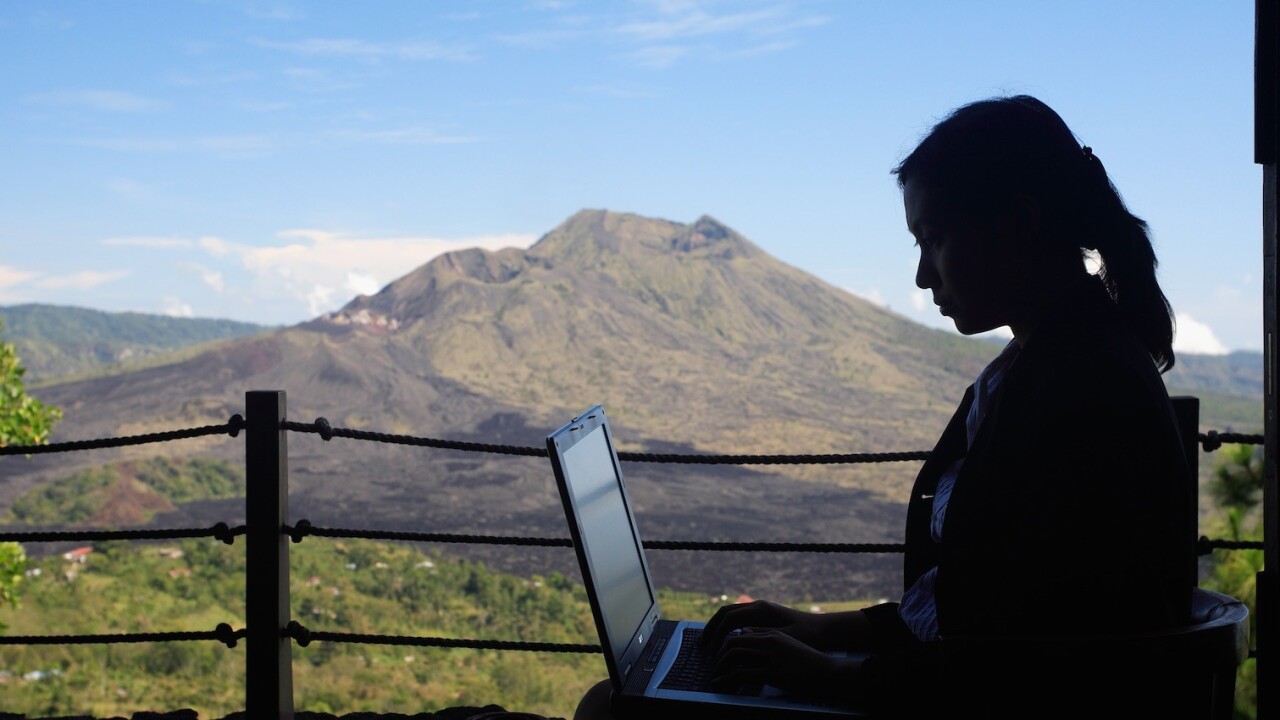
It is easier than ever to become a digital nomad – a person who has no fixed address, rarely spends more than a few months in one country and keeps up with their work on their computer from co-working spaces, coffee shops or hotel rooms around the world.
Apparently this type of lifestyle is getting more and more popular among online professionals and thus there have been dozens of useful articles written on the topic, such as: “Digital nomads explain how they live, work and travel” on TheNextWeb; “Work from anywhere but home” on FastCompany; and my own piece “What I learned when I gave up the 9 to 5” that has gotten over 140,000 views and 2,500 recommends on Medium.
Let me tell you why hiring digital nomads for your startup or an established company might be profitable and why at the company I co-founded, ChameleonJohn.com, we encourage our employees to spend time away from the office. We also give complete freedom to our employees – no fixed work hours and optional office attendance. As long as they complete their tasks, they are free to do whatever they like.
From a superficial perspective, it might seem that digital nomads are terrible employees. They are constantly on the go and are rarely reachable on demand. However, based on my experience, I’d argue that the exact opposite is true.
First off, people are much happier living where they want, because it allows them to do what they want to do. If somebody likes surfing, they can move to a surf town in Bali; if somebody likes diving, they can move to the Philippines or other places full of great dive spots; if somebody likes hiking, they relocate close to the mountains.
Richard Branson, a man who knows a thing or two about hiring, said: “The way you treat your employees is the way they will treat your customers”. The happier your employees are, the more they will love they work, the more innovative ideas they will come up with and the better they will treat your users/customers, which leads to more sales and eventually to more profit.
Digital nomads usually don’t have fixed work hours, which makes them acquire a results-oriented mindset. The main question founders have to ask themselves when they are hiring a new person is – can this person deliver results? After all, does it really matter how much time one spends working or whether they work from an office as long as they deliver?
Marten Mickos, the long-time CEO of MySQL, which employed 500 people full-time and did not have a single office, told me:
“It is very easy to look busy in the office by attending meetings, answering e-mails and drinking coffee. But when you work remotely, the question you will be asked is: ‘Where are the results?’ Not only that, if we hired people only in the Bay Area, we would not have had the access to the best talent in the world, whereas now we can hire a person from literally anywhere. And we save tons of money on office rent.”
True, some companies have had terrible experiences with remote workers, such as missed deadlines, bad communication and unfinished work. Here are a few tips that have helped me successfully work remotely for more than two years:
- Make sure to have good communication tools in place. Ask your colleagues to respond to their e-mail every day; use Skype as often as they are on their computers; check your preferred collaboration platforms every few hours;
- Look for people who are focused on results. Your co-workers have to put work tasks in front of everything else. They are free to do whatever they like and go wherever they want to go as long as they complete their work. What’s more – if possible, base their salaries on performance.
- Meet face to face once in a while. One of the most famous remote companies, Buffer, makes their team meet face to face every few months. As their CEO Joel says: “Being a fully distributed team, we still believe it is super important to meet and spend time with each other face-to-face. As a result, we have team retreats at different locations around the world every 5 months.”
Hope this was helpful. If you have any questions, let me know in the comment section below!
Read Next: This website is a guide to the best cities for digital nomads and perpetual travelers
Image credit: Shutterstock
Get the TNW newsletter
Get the most important tech news in your inbox each week.






